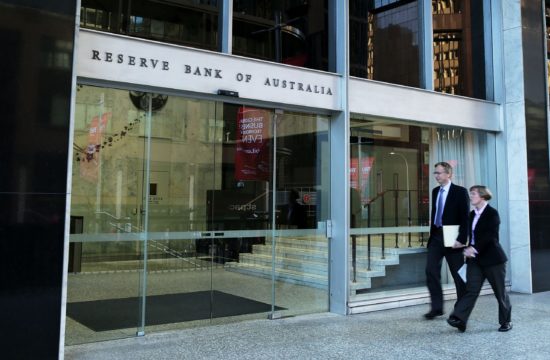The backdrop to the Committee’s March meetings has been dominated by the outbreak and spread of Covid-19 (Coronavirus). The nature and global impact of this shock, and the speed with which it has spread, is unprecedented in recent history.
The Financial Policy Committee (FPC) recognises that the front line of combatting the challenges of Covid-19 comprises the extraordinary efforts of NHS health professionals, carers, and volunteers across the country, as well as the exceptional support provided by the Foreign and Commonwealth Office to UK citizens abroad.
Consistent with its remit, at its March meetings, the FPC has taken action to respond to the financial stability risks associated with the economic disruption resulting from Covid-19. These actions, taken in concert with actions taken by the Bank, the Monetary Policy Committee (MPC) and the Prudential Regulation Committee (PRC), have sought to reduce pressure on banks to restrict the provision of financial services, including the supply of credit and support for market functioning, and ensure that the financial system can be a source of strength for the real economy during this challenging period. Given the pace at which the situation is evolving, the FPC will continue to monitor closely the credit conditions faced by UK households and businesses and the operation of the UK financial system, and stands ready to take any further actions deemed appropriate to support UK financial stability.
Having built up the resilience of the UK financial system over recent years, the FPC judges that major UK banks are well able to withstand severe market and economic disruption. Major UK banks have Tier 1 capital levels of around 17.5% of risk weighted assets – more than three times higher than before the global financial crisis. They hold £1 trillion of high-quality liquid assets, enabling them to meet their maturing obligations for many months. The FPC further judges that household vulnerability is considerably lower than before the financial crisis.
The UK countercyclical capital buffer (CCyB) creates an additional cushion for banks to absorb potential losses and continue lending. The FPC can release this buffer in a stress, meaning that banks can keep lending to households and businesses. This means that banks absorb rather than amplify shocks, and banks can be part of the solution to any stress, rather than contributing to the problem.
At its Policy meeting on 9 March, the FPC reduced the UK CCyB rate to 0% of banks’ exposures to UK borrowers with immediate effect. The rate had been 1% and had been due to reach 2% by December 2020. This action supports further the ability of banks to supply the credit needed to bridge a potentially challenging period, and reinforces the FPC’s expectation that all elements of the substantial capital and liquidity buffers that have been built up by banks can be drawn down as necessary.
The FPC welcomed the PRC’s supervisory guidance that banks should not increase dividends or other distributions in response to these policy actions. The FPC expects that the additional capital headroom will be used to support the real economy.
The release of the CCyB amounts to £23bn of capital, which can support up to £190bn of bank lending to businesses. That is equivalent to 13 times banks’ net lending to businesses in 2019.
The FPC has also made clear that it expects to maintain the 0% rate for at least 12 months. Due to the usual 12 month implementation lag, any subsequent increase would not be expected to take effect until March 2022 at the earliest. In addition, the pace of return to a standard-times rate of in the region of 2% will take into account how far banks’ capital has been depleted through this period and thus the task to rebuild capital.
Together with the Bank’s new term funding scheme (TFSME), announced by the MPC on 11 March, which will increase the availability of funding for banks and thus lending, especially to small and medium-sized enterprises, these actions mean that banks should not face obstacles to supplying credit to the UK economy.
At its Policy meeting on 19 March, the FPC reviewed developments and actions since its meeting on 9 March. The FPC welcomes the announcement by HM Treasury and the Bank of England of a Covid Corporate Financing Facility (CCFF) to provide additional help to firms to bridge through Covid-19-related disruption to their cash flows.
By providing an alternative source of financing for companies that make a material contribution to the UK economy, and that had an investment-grade rating (or equivalent) prior to being affected by Covid-19, the CCFF will help to retain the capacity of the banking system to lend to a much broader range of companies, including small and medium-sized enterprises. That capacity was boosted by the reduction in the UK countercyclical capital buffer and the launch of the TFSME.
Businesses and households should be able to turn to the banking system to meet their need for credit to bridge through this period of economic disruption. The FPC, together with the PRC, will monitor closely the response of banks to these measures as well as the credit conditions faced by UK businesses and households more generally.
Stress testing
At its Policy meeting on 19 March the FPC, together with the PRC, agreed to cancel its 2020 annual stress test of major UK banks and building societies. The decision to cancel the 2020 stress test will help lenders focus on meeting the needs of UK households and businesses via the continuing provision of credit.
The FPC, together with the PRC, also agreed to pause the 2019 biennial exploratory scenario on liquidity until further notice. It had been due to publish the results of this exercise in mid-2020.
The FPC supports the Financial Conduct Authority’s (FCA) decision to postpone its survey into open-ended funds, which was planned in the context of the joint Bank/FCA open-ended funds review. The survey has been delayed until further notice.














